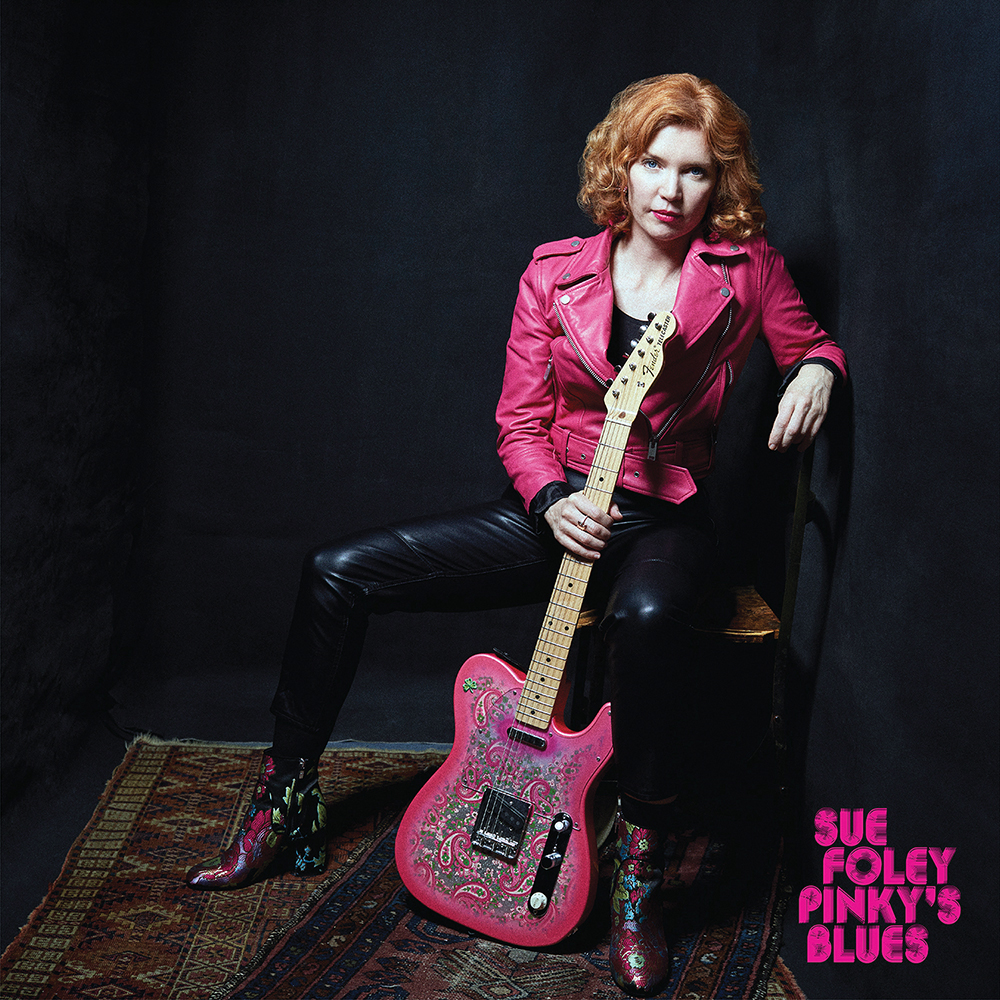This week will witness the most blues-intensive stretch of days that Memphis has seen in a long time. For one thing, the International Blues Challenge (IBC), which usually occurs in January, has now been folded into the same week as the Blues Music Awards (BMAs). And that’s not all: The Blues Hall of Fame Induction Ceremony will kick things off on Wednesday, May 4th, followed by the Blues Music Awards on Thursday, May 5th. On Friday, May 6th, the Blues Hall of Fame will host a special reception for award-winning music photographer Jérôme Brunet, even as the IBC begins its four-day run.
Sue Foley, nominated for the BMAs’ Koko Taylor Award (Best Traditional Blues Female Artist) this year, with her Pinky’s Blues nominated for Album of the Year, exemplifies the international quality of the blues today, though she’s never participated in the IBC. Having grown up in Ottawa and Vancouver, Foley is proof positive of the blues’ power to reach across cultural boundaries. Now regarded as one of the finest blues guitarists alive (to which her Koko Taylor Award nomination attests), she became a devotee of the genre at an early age, moving to Austin, Texas, by the time she was 21. To trace her evolution as an artist, I spoke with her shortly before her other Memphis appearance — at the Beale Street Music Festival.
Memphis Flyer: Thank you for taking a moment to talk during your tour.
Sue Foley: Sure! We’re out with ZZ Top and Cheap Trick this week. It’s pretty fun. I got to sit in with Cheap Trick last night and I realized, “Oh my god, these guys were so big for me.” You forget — because I’m a blues artist, I haven’t thought about them for a long time. And then I was like, “Wait a minute, these guys are huge!”
I was really appreciating your guitar, “Pinky,” on your latest album. There’s a unique charm to a Fender Telecaster’s sound, isn’t there?
There is. It’s a really simple guitar. I’m a pretty staunch Tele player. Not that I can’t play other guitars, but there’s something about a Tele. A lot of it was Albert Collins, I think, who put the Tele on the map for me. “The Master of the Telecaster.” And when you think about the staunch Tele players, it’s such a unique set of people, from Steve Cropper to Muddy Waters.
A lot of country people like Teles. It’s not a huge blues guitar, but there are some pretty killer blues players that gravitated to Teles, too.
Are there any Memphis players who have been especially significant to you?
Yes, the most significant player for me is Memphis Minnie. She’s my favorite artist of all time. She was a guitar-playing woman and paved the way for all of us. Blues has a long history of women playing guitar, and I really attribute that to Minnie. Because who came before her, really? Nobody that had a career like she did. There was Sister Rosetta Tharpe, who was more gospel, but Minnie really, for me, paved the way. I’ve been playing her songs since I was a teenager. I love a lot of Mississippi artists. But Memphis Minnie’s still my number one.
Has it been challenging, being a woman in the blues world?
The funny thing is, I think the blues has always been receptive to strong women and women instrumentalists. So from the players themselves, I never felt any difficulty. Can you play or can you not play? This is just a hard business, period. So I’m not sure it’s any harder on women than men. It’s just different. A different set of obstacles we encounter. For instance, having children. Playing the blues really sets your life in a certain direction, as a female would-be child-bearer. But in the blues, there are a lot of female instrumentalists. More than ever. So I feel it’s more about the music. People just respect you if you’re a good player.
The 43rd Blues Music Awards will be held at the Renasant Convention Center on Thursday, May 5th. Doors 5 p.m. Visit blues.org/blues-music-awards for details.
